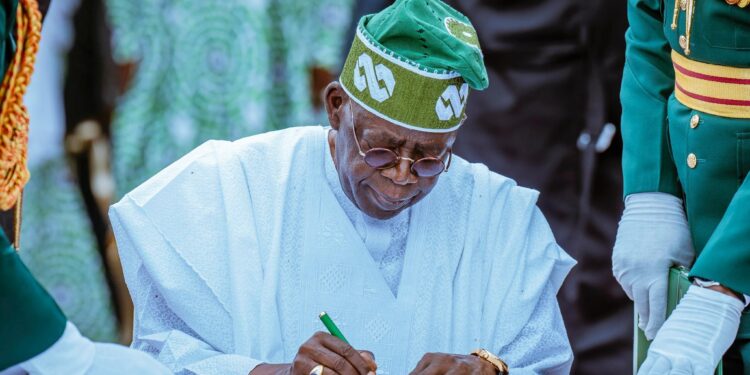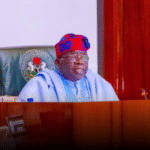Tinubu Reviews, Overhauls Nigeria’s Procurement Threshold

President Bola Ahmed Tinubu has approved a comprehensive overhaul of the nation’s procurement thresholds, marking a significant step towards streamlined processes, enhanced transparency, and a renewed focus on local industry.
The reforms, announced via a statement by Dada Olusegun, Special Assistant to the President on Social Media, published on his X platform, introduce a tiered system of contract approval, decentralizing authority and aiming to expedite project execution while bolstering accountability.
The most notable aspect of the new regime is the redistribution of contract approval responsibilities across various levels of government.
•Federal Executive Council (FEC): Retains oversight for high-value contracts, approving those valued at N5 billion and above for goods and services, and N10 billion and above for works. This ensures strategic national projects undergo rigorous scrutiny at the highest level.
•Ministerial Tenders Board: Takes charge of mid-range projects, approving contracts from N50 million to N1 billion for goods and services, and N50 million to N2.5 billion for works. This empowers ministries to manage significant projects within their purview efficiently.
•Parastatal Tenders Board: Approves contracts up to N500 million for goods and services, and up to N1 billion for works, enabling parastatals to manage their operational needs effectively.
•Accounting Officers of MDAs: Are authorized to approve contracts below N50 million for goods and services and below N100 million for works, facilitating swift approvals for smaller, routine procurements.
The new framework emphasizes transparency and accountability, mandating that projects valued at N1 billion and above for goods and services, and N5 billion and above for works, must undergo National and International Competitive Bidding, with requests for quotations and prequalification requirements. Projects from N500 million for goods and services, and N1 billion for works, must go through Consultancy.
Ministries, Departments, and Agencies (MDAs) are required to publish monthly procurement reports on their websites and the Bureau of Public Procurement (BPP) portal, detailing all awarded contracts. MDAs must budget for procurement training using only BPP-accredited trainers.
In a strategic move to stimulate domestic production and reduce import dependency, the Tinubu administration has reinforced its “Nigeria First” policy. MDAs are now mandated to prioritize local goods and contractors in all federal procurements.
Sunday Dare, Special Adviser on Media and Public Communication to President Tinubu, reiterated the administration’s commitment to strengthening local industries, stating that the new policy, adopted at a recent Federal Executive Council (FEC) meeting, aims to “stimulate domestic production, enforce local content compliance, and overhaul the government’s procurement practices.”
The sweeping reforms are expected to have a profound impact on Nigeria’s economy, fostering growth in local industries, reducing bureaucratic bottlenecks, and enhancing transparency in public procurement.
By decentralizing approval processes and prioritizing local content, the Tinubu administration aims to create a more efficient, equitable, and sustainable procurement ecosystem.









